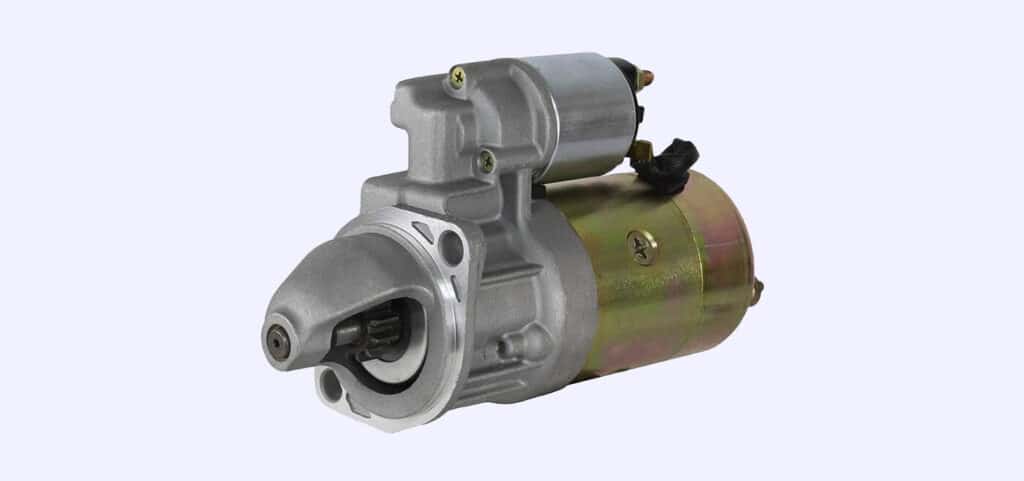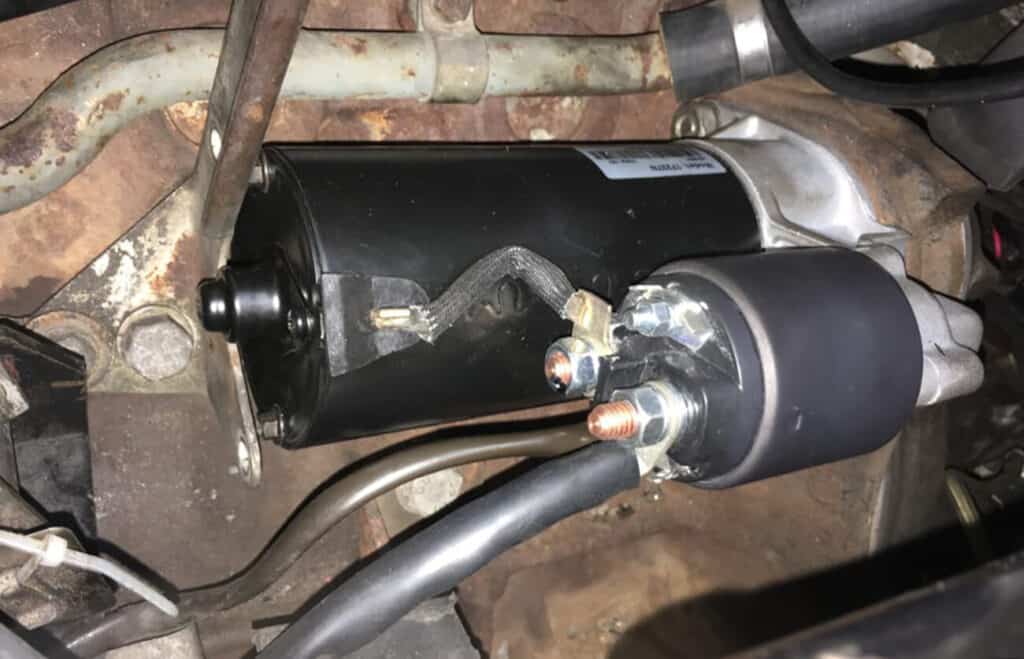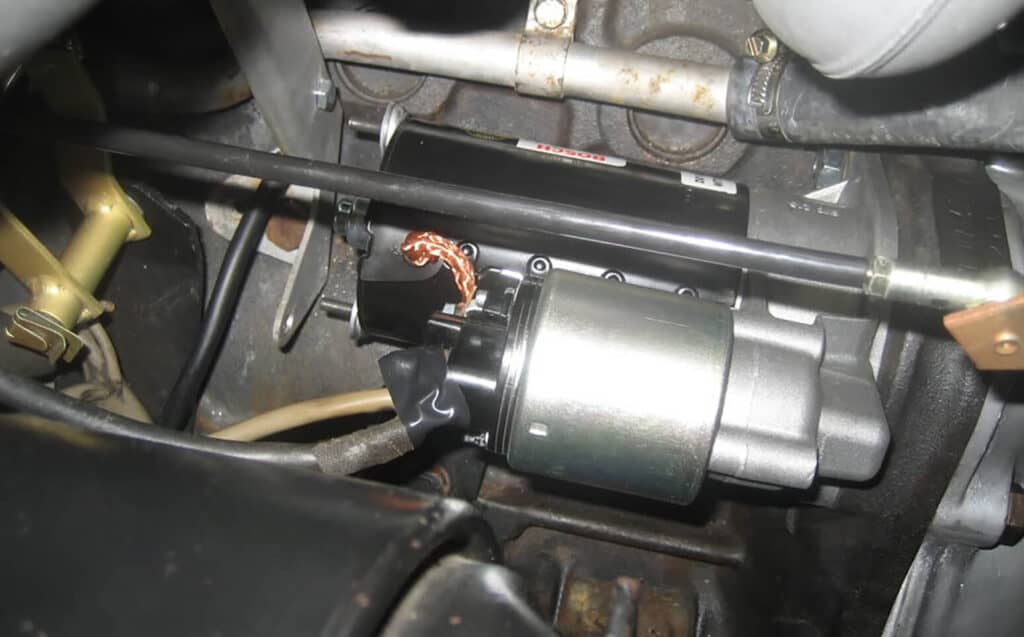Introduction: The Role and Importance of a Starter Motor in Your Vehicle
The heart of your vehicle may be its engine, but the starter motor is the key that brings it to life. Just as your heart pumps blood throughout your body, your starter motor sends power to your engine, sparking the ignition that sets everything in motion. In short, no starter motor, no journey. But how do you choose the right starter motor for your vehicle?

Making the Selection: Key Factors to Consider When Choosing a Starter Motor
Choosing the right starter motor is akin to finding the perfect piece of the puzzle – it must fit impeccably. Here are some pivotal factors to take into account:
• Vehicle’s Make and Model: Each vehicle comes with its own set of requirements. The starter motor for a Honda Civic won’t work for a Toyota Camry, much like how a Chihuahua’s sweater won’t fit a Golden Retriever. Ensure you understand the specific needs of your vehicle’s make and model before making a purchase.
• Reputation of the Motor Brand: We all have that one brand we swear by, whether it’s our favorite coffee or laundry detergent. In the world of starter motors, the reputation of the brand matters, too. Trustworthy brands have a history of performance and durability, so you can depend on them like an old friend.
• Your Budget: While we’d all love to have bottomless pockets, the reality is that budget plays a significant role in our decisions. Keep in mind, though, quality and cost are often closely related in the world of auto parts. A higher-priced motor from a reputable brand could save you from frequent replacement costs down the road.
Classifying Motors: Understanding the Two Main Criteria
When it comes to starter motors, there are more types than Baskin-Robbins has flavors. Here are two main criteria that can help you navigate this variety:
• Type of Motor: Starter motors come in three main types – series, shunt, and compound. A series motor provides high starting torque, making it ideal for heavy-duty applications. Shunt motors are great for steady speed, while compound motors are the Swiss army knife, offering a blend of the two. Knowing which one your vehicle needs is crucial in making the right choice.
• Power Rating: If the type of motor is the ‘what,’ the power rating is the ‘how much.’ This rating tells you how much power the motor can handle, much like a weight lifter’s max bench press. Too high and you could fry the motor; too low and it might not start your engine. Ensuring your new starter motor aligns with your vehicle’s power needs is like finding Cinderella for the glass slipper – a perfect match.
Finding Quality: Evaluating the Best Brands for Motor Starters
In the grand opera of starter motors, different brands play unique parts. Here are some tips to help you discern the lead singers from the chorus:
• Reputation Matters: Brands like Bosch and Denso didn’t rise to the top by accident. They’ve earned their stripes through consistent performance and stellar reviews from drivers like yourself. So, put on your detective hat and delve into the history and reputation of the brands on your shortlist.
• Price vs. Value: While a high price tag doesn’t always equal high quality, often there’s a correlation. A starter motor from a reputable brand might cost a bit more, but the longer lifespan and dependable performance can provide better value in the long run.
• Warranty is Key: A strong warranty is like a brand’s vote of confidence in its product. It says, “We stand by what we sell!” Brands that offer longer warranties usually have faith in the durability of their starter motors, which can be a solid indicator of quality.

Getting the Right Fit: How to Ensure a Motor Suits Your Vehicle
Choosing the right starter motor for your vehicle is like finding the right key for a lock. Here’s how you can ensure a perfect fit:
• Vehicle Specifications: Your vehicle’s make, model, and engine size dictate the type of starter motor you need. This information can be found in your vehicle’s manual, and most online auto parts stores will help you filter options based on these details.
• Check the Part Number: Starter motors come with specific part numbers. Matching the part number of your old starter motor with the new one ensures you’re getting the right replacement.
• Consult a Professional: If you’re still unsure, don’t hesitate to consult a professional. After all, it’s better to be safe than sorry, especially when dealing with important vehicle components. Mobile mechanic services like Uchanics can provide expert advice and even help you with the replacement process.
Understanding Costs: How Much Does a Good Motor and Its Installation Cost?
Let’s talk numbers, shall we? The cost of a good starter motor typically ranges from $150 to $300. But wait, there’s more! This price doesn’t always include the labor cost for professional installation, which can add another $100 to $200 to your bill. But let’s be real: Can you put a price tag on the comfort of a silent, easy morning start? We think not!
Here are some quick cost-saving tips:
• Do Your Research: Costs can vary significantly from brand to brand and store to store. So, don your researcher’s hat and compare prices before making a purchase. Your wallet will thank you!
• Think Long-Term: Don’t just consider the upfront cost. A cheaper starter motor may need replacing sooner, which can make it more expensive in the long run.
• Consider Professional Help: Don’t discount the value of a professional installation. With a service like Uchanics, you can save time, reduce stress, and ensure the job is done right the first time!
Worth the Effort: Assessing the Value and Time Required for a Motor Replacement
Changing a starter motor isn’t a walk in the park. It’s more like a trek up a hill – a bit strenuous but absolutely worth the view from the top. Think of a smoothly running vehicle as your reward for this challenging journey!
Here’s what to expect in terms of time and effort:
Time Commitment: If you’re a DIY enthusiast, expect to spend a couple of hours on this project. If you’re hiring a professional, they’ll likely wrap it up in an hour or two.
Effort Evaluation: If you’re going the DIY route, be prepared for some heavy lifting, literally. Removing and replacing a starter motor can be physically demanding.
Value Proposition: Replacing your starter motor is an investment. Not just in your vehicle, but also in your peace of mind. Knowing that your car will start smoothly every morning? That’s priceless.

DIY vs. Professional Installation: How Hard Is It to Install a New Motor?
Ah, the age-old question: to DIY or not to DIY? Well, that really depends on your comfort level, skill set, and time availability. Installing a new starter motor isn’t exactly a quick oil change. It requires patience, knowledge, and the right tools.
If you’re a DIY aficionado with a well-stocked toolbox and a free Saturday afternoon, you might relish the challenge. Picture this: You, armed with your socket set and service manual, conquering the intricate landscape under your car’s hood. You disconnect the battery, remove the old starter motor, and seamlessly install the new one. It’s a struggle, but by the end of the day, your vehicle purrs like a contented cat. You did it! You’ve saved some money, learned a lot, and gained a new sense of accomplishment.
On the other hand, if the thought of removing and installing a heavy component while lying under your car makes you break out in a cold sweat, professional installation might be the way to go. Picture this instead: You, sipping a cup of coffee while a skilled mechanic from Uchanics efficiently replaces your starter motor. It’s done in no time, with no fuss, no stress, and no dirt under your fingernails. It costs a bit more, but the peace of mind and time saved are worth their weight in gold.
Ultimately, the decision comes down to you. If you’re confident in your abilities, have the necessary tools, and are willing to dedicate the time, go for the DIY approach! If not, don’t hesitate to call in the professionals. Your car will thank you either way.
Conclusion: Making Informed Decisions for Your Starter Motor Purchase
Purchasing a new starter motor is not an everyday event. It’s a significant decision that requires a good understanding of your vehicle, some diligent research, and, of course, a clear view of your budget. But with the right information at your fingertips, you’re more than capable of making an informed decision that ensures your vehicle continues to serve you reliably. After all, your journey’s beginning should always be as smooth as the road you travel.
